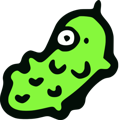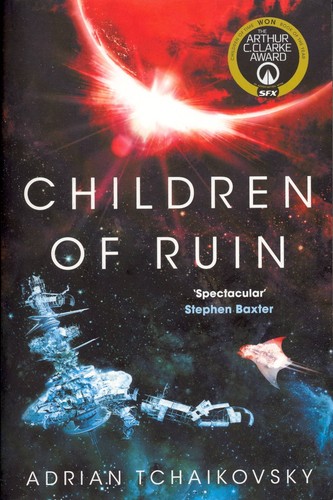enne📚 reviewed Children of Ruin by Adrian Tchaikovsky (Children of Time, #2)
Children of Ruin
3 stars
This is the sequel to Children of Memory. It's got some similar set up to the first book, in that it's got a dual perspective (historical development of Nod and Damascus, and then current time trip there with characters from the first book) and it's got some uplifted non-human creatures (octopuses!!). However, I think this book also has a huge new horror element to it that the first book didn't have that it pulls off very successfully and creepily.
This book suffers a little bit from second book syndrome in that the first book felt much more tightly crafted and the ending resonated in a satisfyingly foreshadowed way. Book two is doing a few too many similar things, and it doesn't quite all come together in the same way. I think for a book two of a (presumed?) trilogy, I was hoping for more indication of some larger planned arc plot tying these books together, and without that this book feels more like a serial than part of a larger work.
Probably my biggest disappointment was really that most of the characters in book two felt very flat to me. I don't think the characterization in book one was particularly strong, but I did enjoy seeing various humans change through time as well as getting a window on different Portiid individuals as well. In this book, Senkovi certainly is a stand-out here as a wry scientist. The part I did really enjoy about the characters was in the spider/human relations. Fabian and Meshner supporting each other and Meshner understanding Fabian's social standing and Meshner having a good backstory for why he was interested in Fabian's research. Helena realizing that her peer relationship with Portia has a lot more of a unstated power and social dynamic than she thought previously.
I do really like the octopus psychology brought in here, in terms of reflecting the fact that an octopus's brain is split across its tentacles; that it imagines wanting something and then its tentacle brains just make it happen and appear. As with book one, I wish these octopuses also had real names that were not just repeated across multiple characters. This book tries to write in some reasoning for why this is happening here, but it still doesn't work for me as a reader, sorry. Given the fluid nature :drum: of octopus society too, I felt like the brief windows into octopus life were also not as effective for me as they were with the Portiids.
I have a few spoiler-y ending thoughts, which I'll leave in a separate comment.

